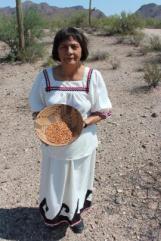 My son, Mike, worked a miracle in a woman’s life. While living in Portland, Oregon, he knew a woman whose boyfriend abused her physically. She was personally at risk. She had tried other solutions, all of which had failed. Mike and a friend helped her to leave her situation, get on a bus, leave town, save her life, and start a new life elsewhere. She was free as she hadn’t been in some time. The dictionary defines the term ‘miracle’ as “a wonderful or surpassing example of some quality.” My son, Mike, is miraculous (“having or seeming to have the power to work miracles”). His actions impacted this woman’s life for good.
My son, Mike, worked a miracle in a woman’s life. While living in Portland, Oregon, he knew a woman whose boyfriend abused her physically. She was personally at risk. She had tried other solutions, all of which had failed. Mike and a friend helped her to leave her situation, get on a bus, leave town, save her life, and start a new life elsewhere. She was free as she hadn’t been in some time. The dictionary defines the term ‘miracle’ as “a wonderful or surpassing example of some quality.” My son, Mike, is miraculous (“having or seeming to have the power to work miracles”). His actions impacted this woman’s life for good.
I’ve noticed that not just Mike but many people may have a deep impact for good. It is my experience that we can be a miracle in the lives of others.
 Farmers in the hot, dry, desert area of northwest Mexico plant seeds and grow varieties of corn and beans that are unusually hardy and resistant to drought. While other plants would wither and die in a harsh climate, these varieties survive and flourish. The white tepary bean is one of these plants. It sends its roots as deep as six feet into the rocky, sandy earth to find the moisture it needs, even when very little rain falls. It can flower and fruit in the 115-degree (Fahrenheit, or 46-degree Celsius) desert temperatures with only one rainfall each year. Its leaves remain remarkably green, even in the heat of mid-July. (See Gary Paul Nabhan, “Seeds of Renewal,” World Monitor, Jan. 1989, Pages 17–20.)
Farmers in the hot, dry, desert area of northwest Mexico plant seeds and grow varieties of corn and beans that are unusually hardy and resistant to drought. While other plants would wither and die in a harsh climate, these varieties survive and flourish. The white tepary bean is one of these plants. It sends its roots as deep as six feet into the rocky, sandy earth to find the moisture it needs, even when very little rain falls. It can flower and fruit in the 115-degree (Fahrenheit, or 46-degree Celsius) desert temperatures with only one rainfall each year. Its leaves remain remarkably green, even in the heat of mid-July. (See Gary Paul Nabhan, “Seeds of Renewal,” World Monitor, Jan. 1989, Pages 17–20.)
Joseph Wirthlin applied this concept to our own behavior:
Perhaps members of the Church could emulate the example of these hardy, sturdy plants. We should send our roots deep into the soil of the gospel. We should grow, flourish, flower, and bear good fruit in abundance despite the evil, temptation, or criticism we might encounter. We should learn to thrive in the heat of adversity.
Each of my adult children is a miracle. Just as my wife, Kim, presided over the birth of each of them, I felt strongly that it was my role, my job as a father, to preside over their second birth. All six of my kids have grown up with roots that go down deep, harboring in their hearts a deep sense of who they are, how they should act towards others, how they should follow God. In doing so, they have not only saved others—They have saved themselves.
Did these miracles happen? Did these happenings constitute miracles? It depends on your perspective:
For my thoughts are not your thoughts, neither are your ways my ways, saith the Lord.
Here are some associated thoughts from Harvard Business School Innovation Expert Clay Christensen:
I believe that the reason these remarkable people succeeded in the face of today’s apparent indifference toward religion is that these member missionaries tried to know and follow God’s thoughts and His ways as best they could. I believe that the miracles that occurred in their lives will be predictable in our lives, too—when we follow His thoughts and ways as well. (The Power of Everyday Missionaries, Chapter 16, Pages 145-150.)
I have learned for myself that each of us may work miracles—in others, and more importantly, in ourselves. In order to do so, we must have roots that go down deep, roots that change our lives. For good.
——– End of Post ——–
Bonus Materials:
1. Read, watch or listen to the entire address: “Seeds of Renewal”, Joseph B. Wirthlin, April 1989 LDS General Conference.
——– End of Bonus Materials ——–
WebCredits—List of web resources used in this post but not explicitly credited above:
- Photo, bus-station—commons.wikimedia.org/wiki/File:Arriva_buses_in_Middlesbrough _bus_station_5_may_2009_pic_3.jpg
- Photo, “Basket Of Tepary Beans As An Important Source Of Food”
—www. pricklypearjuice.org/tepary-beans.php - Photo, “Deep Roots”—highlyfavored.affiliateshelpdesk.com/page/2/
——– End of WebCredits ——–







